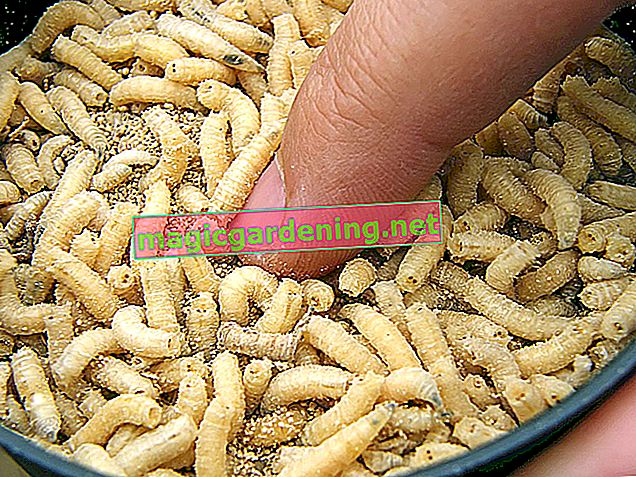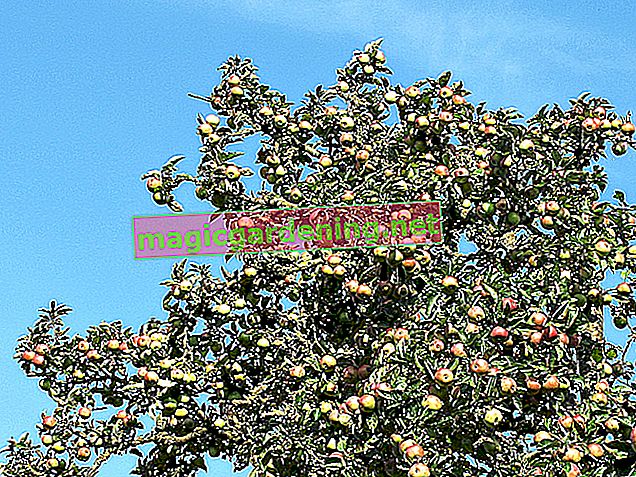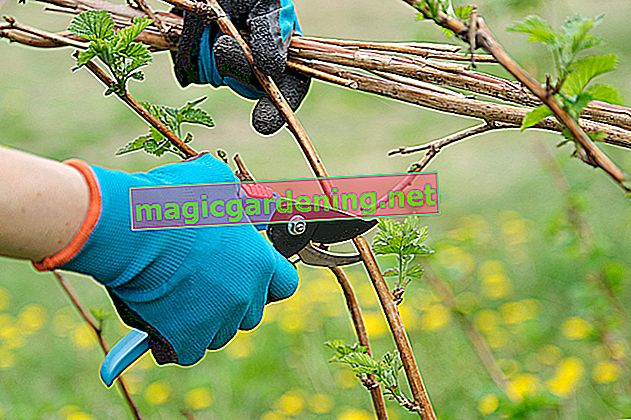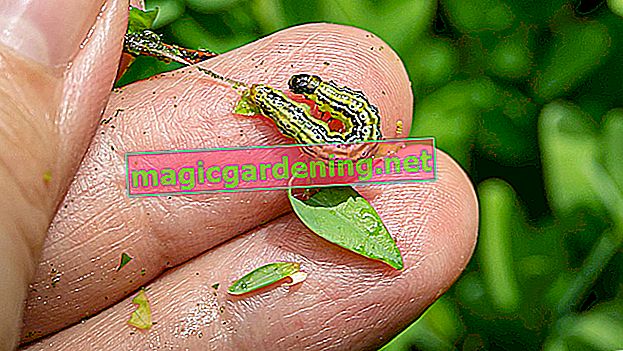
Larvae also love blackberries
Some insects prefer to lay their eggs in berries, where their larvae can comfortably feed and develop after hatching. Pests that target blackberries, among others, are:
- the raspberry beetle and
- the cherry vinegar fly
also read
- Maggots on raspberries - what can be done about it
- Are those maggots in my flower pot?
- When maggots live in cherries
Raspberry beetle
The raspberry beetle favors raspberries for its larvae, according to its name, but it is also quite fond of blackberries. Its cream-colored larvae are also called raspberry worms or raspberry maggots, although they are not maggots. You can see this on closer inspection from the 3 pairs of breastbones. They eat the fruit from the inside, thereby creating an outwardly damaged, stunted and deformed berry.
Countermeasures
It is worth paying attention to the raspberry beetle. During the flight and egg-laying time from mid-May onwards, you should always search your blackberry bushes for the light brown beetles and collect them manually
Traps with a lure scent dispenser can also contain the infestation relatively effectively.
Cherry vinegar fly
The cherry vinegar fly is a pest immigrant from the Far Asian region and has only been found in Germany since around 2011. The light reddish-brownish fly is a heavy burden, especially for fruit growers. Their white larvae (in this case, they are actually maggots) eat large quantities of the fruit from the inside and thereby cause external decay and soft spots.
Countermeasures
If the infestation already exists, it only helps to remove the affected fruits as thoroughly as possible in order to contain the next year's population and to dispose of them in the organic waste (not on the compost!).
Otherwise, early prevention is called for. For example, you can build traps yourself by filling plastic bottles or cans half and half with water and vinegar and a splash of dish soap and hanging them up in the bushes while the flies are flying and laying eggs.
Effective help is promised by putting insect protection nets over the bushes in good time. Due to their close-knit fabric, the flies cannot penetrate and consequently cannot lay eggs on the fruit.








